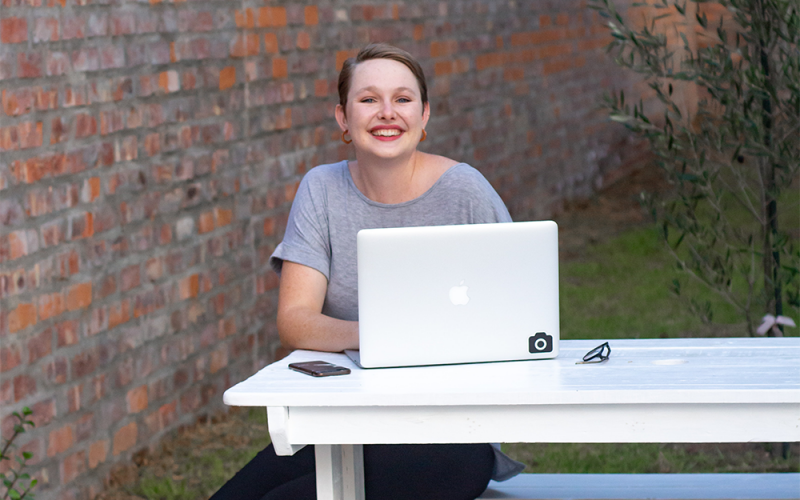Our Co-founder, Emma Hatto, on building a business to move with the times.
In modern architecture, flexibility is a major consideration when laying the foundations. These measures are put in place so a building can adapt to changes in the landscape and even survive earthquakes. For structures that are built on rigid foundations, hairline cracks often begin to show over time.
It’s the same for businesses. Flexibility allows you to move with the times and withstand whatever seismic shifts come your way (hello Covid-19). That’s why it’s the future. Over the last decade, there has been an increase in flexible working, but it’s not just about breaking the 9-to-5. There are multiple factors to consider when rebuilding your business to be more flexible. Here’s some of them.
Flexible Teams
It has been reported that team costs (eg: wages, payroll, benefits and taxes) can amount to up to 70% of a company’s outgoings.
For companies that are in that awkward growth stage, working in an unpredictable industry or again, trying to survive huge global economic change, hiring a team can be a dilemma. On one hand, you need extra people to help your business grow and move to that next, but on the other, what happens if work dries up?
Enter, flexible teams — freelancers, contractors and specialists who can support your business only as and when you need them. That’s why we started ibLE. We have a team of virtual experts in everything from marketing, to finance and operations who can support you on an ongoing basis, or pick up that half-hour task you’ve been meaning to get done this week. Flexible teams give you the option of extra hands when you need them most, without the commitment of hiring.
Flexible Working
Flexible working isn’t just about flexi-time, it has lots of different variations. In a study by CIPD, 34% of respondents had flexi-time, 12% had reduced hours and 10% had compressed hours (eg: they could work four, 10-hour shifts, instead of five, 8-hour shifts).
An article in the Financial Times reported that 89% British workers believe that flexible working would boost their productivity and the UK government even launched a flexible working task force to make laws and offer guidance for businesses to switch to this new way of working.
In other words, it’s what people want. Flexible working allows your team to work around their lives — whether that means having an hour to pick up the kids from school, or starting the day at 7am, instead of 9am. Gone are the days of taking a holiday to go for a dentist’s appointment; the future of work is built with real people with real lives in mind.
Flexible Spaces
In a study by Buffer, 99% of respondents said they would like to work remotely at least some of the time for the rest of their careers. However, that doesn’t mean the office is dead. A recent study showed that 35% of respondents would want the freedom to work in different locations on different days.

The benefits of remote working
- 81% said remote working would encourage them to increase their productivity levels.
- You can have access to a bigger talent pool that isn’t restricted by location.
- It makes opportunities more accessible for people who have disabilities, have kids or care for a family member at home.
- You can retain great talent, even if they need to move elsewhere, or decide to go travelling.
- There’s no commute.
The benefits of having an office
- It’s a central HQ for your business.
- It gives people a place to separate work from home.
- You can easily build a company culture when everyone’s in the same place.
- Offices make it easier to collaborate.
- People enjoy the social side of being in an office (A study by Hubble showed that 75% dont’ enjoy the lack of social interaction when working from home)
When you have a flexible approach to where people work, you can have the best of both worlds and give them the option to choose.
Flexible Services
During lockdown, businesses have had to pivot to survive. We’ve seen fashion houses making protective face masks and distilleries producing hand sanitizers. Each business has had to adapt their offering to the current needs of their customers, with some very impressive innovations.
I hope we never have to experience anything like this pandemic ever again, but if anything, it has taught us a valuable lesson. Structure and consistency are both incredibly valuable when building your product or service offering, but what room is there to change?
In the future, I see more businesses exploring all the possibilities of their current resources. They will promote the services that fit their positioning, but additionally, will have a roster of back-up services that they can offer.

Flexible Systems
Ideas are the starting point for flexible services, but they won’t work unless there are flexible infrastructures in place.
Given the current circumstances, I think more businesses will prioritise future-proofing their business and thinking ‘what if?’. This means having the ability to pivot slowly over time, or change at a moment’s notice. Ops teams will be given the green light to explore systems that safeguard the company and lay those imperative flexible foundations.
The great thing about flexible working is that it also flexes around what currently exists, not just what’s to come. This means, you don’t have to change everything at once — you can introduce different elements at a time.
If you need a flexible team, who can also support you to make other flexible changes to your business, get in touch. We’d love to help.


2 comments
Comments are closed.